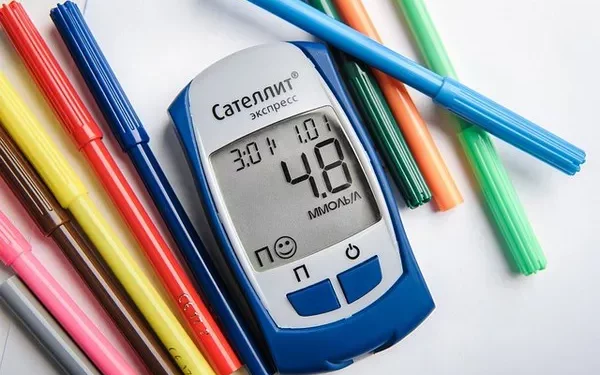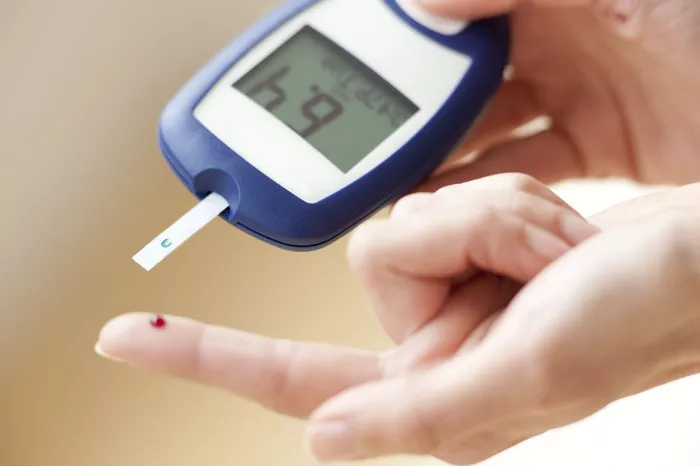Hypoglycemia, defined as abnormally low blood glucose levels, is a common metabolic condition that can occur in newborns shortly after birth. It can result from a variety of factors, including prematurity, maternal health conditions, genetic factors, or complications during labor and delivery. Neonatal hypoglycemia is a medical condition that requires prompt attention and treatment, as prolonged low blood sugar can lead to serious consequences, including neurological damage.
In this comprehensive article, we will explore the causes of hypoglycemia in newborns, the physiological mechanisms involved, and the implications for the baby’s health. By understanding the various factors that contribute to this condition, healthcare providers and parents can work together to ensure early detection and appropriate management.
Understanding Neonatal Hypoglycemia
Newborns, like adults, rely on glucose as their primary source of energy. During pregnancy, the placenta provides a continuous supply of glucose from the mother to the baby. After birth, the infant must begin regulating their own blood glucose levels through feeding and metabolic processes. However, for some newborns, maintaining adequate blood glucose can be challenging, leading to hypoglycemia.
The Definition of Hypoglycemia in Newborns
The definition of neonatal hypoglycemia varies slightly depending on the institution or the guidelines being followed, but it generally refers to a blood glucose concentration of less than 40-45 mg/dL (2.2-2.5 mmol/L) within the first 24 hours of life, and less than 50 mg/dL (2.8 mmol/L) thereafter. However, the threshold for what constitutes hypoglycemia may depend on the specific risk factors of the baby, as well as their gestational age and overall health.
Why Blood Sugar Levels Drop After Birth
Before diving into the causes of hypoglycemia, it is essential to understand the normal transition that occurs in newborns regarding glucose regulation:
In Utero Glucose Supply: In the womb, a baby receives a continuous supply of glucose from the mother. The baby’s pancreas produces insulin in response to the maternal glucose levels.
Separation from Maternal Glucose Source: After birth, the supply of glucose from the mother is suddenly cut off, and the newborn must rely on stored glycogen (mainly in the liver), feeding, and metabolic adaptations to maintain normal blood glucose levels.
Regulation through Glycogen and Feeding: Healthy, full-term newborns can generally regulate their blood glucose levels within a few hours of birth by mobilizing glycogen and transitioning to feeding.
However, certain factors can disrupt this transition and lead to neonatal hypoglycemia.
Key Causes of Hypoglycemia in Newborns
Various maternal, fetal, and neonatal factors can cause hypoglycemia in newborns. These causes can generally be classified into four broad categories: maternal factors, neonatal conditions, genetic/metabolic disorders, and specific circumstances related to delivery or immediate postnatal care.
Maternal Factors
Maternal Diabetes (Gestational or Pre-existing Diabetes):
One of the most common causes of neonatal hypoglycemia is maternal diabetes, whether gestational or pre-existing (type 1 or type 2 diabetes). Here’s how it works:
High Maternal Blood Sugar Levels: If a mother has diabetes, her blood glucose levels may be elevated during pregnancy. The excess glucose crosses the placenta and enters the fetus’s bloodstream.
Increased Fetal Insulin Production: In response to the high levels of glucose, the fetus produces more insulin. This insulin acts to lower blood glucose levels but also promotes the storage of excess glucose as fat (leading to macrosomia or large birth weight).
Post-Birth Insulin Overactivity: After birth, when the maternal glucose supply is abruptly cut off, the newborn’s pancreas may still be producing large amounts of insulin. The overproduction of insulin can cause a rapid drop in the baby’s blood glucose levels, leading to hypoglycemia.
Maternal Use of Medications:
Certain medications taken by the mother during pregnancy can affect the baby’s glucose levels after birth:
Beta Blockers: These medications, used to treat hypertension, can interfere with glucose metabolism and insulin regulation in the newborn.
Oral Hypoglycemic Agents: Some oral medications used to treat diabetes may cross the placenta and increase the risk of neonatal hypoglycemia.
Poor Maternal Nutrition:
Malnutrition or Fasting: If a mother experiences prolonged fasting or malnutrition during pregnancy, this can affect the fetus’s ability to store glycogen, making it harder for the baby to maintain normal glucose levels after birth.
Neonatal Conditions
Prematurity:
Immature Glycogen Stores: Preterm infants (born before 37 weeks of gestation) have immature liver and muscle glycogen stores, which are typically built up in the final weeks of gestation. Without sufficient glycogen, these newborns may struggle to maintain blood glucose levels after birth, leading to hypoglycemia.
Immature Metabolic System: Preterm infants also have immature metabolic systems, including underdeveloped gluconeogenesis (the process of producing glucose from non-carbohydrate sources) and ketogenesis (production of ketones as an alternative energy source), further predisposing them to hypoglycemia.
Intrauterine Growth Restriction (IUGR):
Restricted Growth: Babies who experience intrauterine growth restriction (IUGR) often have reduced glycogen stores and may have impaired fat stores. These babies are also more likely to have been exposed to maternal malnutrition or placental insufficiency, both of which can contribute to postnatal hypoglycemia.
Perinatal Asphyxia:
Oxygen Deprivation During Birth: Perinatal asphyxia occurs when a baby experiences a period of oxygen deprivation during labor or delivery. This condition can impair the baby’s ability to mobilize glycogen stores and produce glucose, leading to hypoglycemia.
Sepsis and Other Infections:
Metabolic Stress: Newborns with infections, particularly sepsis, can experience metabolic stress that leads to increased glucose consumption. The infection also impairs the liver’s ability to produce glucose, leading to hypoglycemia.
Genetic and Metabolic Disorders
Congenital Hyperinsulinism:
Excessive Insulin Production: Congenital hyperinsulinism is a rare genetic disorder in which the baby’s pancreas produces too much insulin. This overproduction causes the baby to develop severe hypoglycemia, as insulin continues to drive glucose into cells, depleting the blood’s glucose levels.
Inborn Errors of Metabolism:
Genetic Metabolic Disorders: Certain genetic disorders, such as glycogen storage diseases, fatty acid oxidation disorders, and gluconeogenesis defects, can impair the baby’s ability to metabolize glucose and maintain normal blood sugar levels. These disorders are often detected through newborn screening programs.
Endocrine Disorders:
Adrenal or Pituitary Insufficiency: Some babies may be born with endocrine disorders that affect the adrenal or pituitary glands, which in turn can impair glucose production and regulation, leading to hypoglycemia.
Delivery-Related or Immediate Postnatal Factors
Delayed Feeding:
Lack of Early Nutrition: One of the simplest and most common causes of hypoglycemia in newborns is a delay in feeding. Newborns rely on early breast milk (colostrum) or formula to stabilize their blood glucose levels. Delayed feeding can result in prolonged periods of low glucose, particularly for at-risk infants.
Cold Stress:
Temperature Regulation: Newborns, particularly preterm and low birth weight babies, are prone to cold stress. Exposure to cold can cause increased energy expenditure as the baby tries to maintain body temperature, leading to rapid depletion of glucose stores and subsequent hypoglycemia.
Birth Trauma:
Stress and Energy Demand: Newborns who experience traumatic deliveries, such as those involving shoulder dystocia or forceps/vacuum extraction, may experience metabolic stress and increased energy demands, leading to hypoglycemia.
Symptoms of Hypoglycemia in Newborns
Recognizing the symptoms of hypoglycemia in newborns is crucial for timely intervention. However, many newborns may be asymptomatic, making regular monitoring in at-risk infants essential. When symptoms are present, they may include:
Jitteriness or Tremors: Shaking or trembling movements.
Lethargy: Decreased activity, sluggishness, or difficulty waking.
Poor Feeding: Difficulty latching or refusing to feed.
Hypotonia: Decreased muscle tone or “floppiness.”
Seizures: In severe cases, hypoglycemia can lead to seizures.
Cyanosis: A bluish tint to the skin, indicating poor oxygenation.
Diagnosis of Neonatal Hypoglycemia
Diagnosis of hypoglycemia in newborns typically involves routine blood glucose monitoring, particularly in babies who are at high risk. This can be done using heel-stick blood samples or continuous glucose monitoring devices.
Timing: Blood glucose levels are often checked within the first 1-2 hours after birth and regularly throughout the first 24-48 hours of life, particularly in at-risk infants.
Screening for Metabolic Disorders: In cases where hypoglycemia persists beyond the immediate newborn period or is particularly severe, further investigations may be needed to rule out underlying genetic or metabolic disorders.
Management and Treatment of Neonatal Hypoglycemia
The management of neonatal hypoglycemia depends on the severity of the condition and the underlying cause. The primary goal is to restore normal blood glucose levels as quickly as possible to prevent long-term complications.
Early Feeding: For most newborns, initiating early breastfeeding or formula feeding is the first-line treatment. Frequent feedings help stabilize blood glucose levels.
Supplementation: In cases where blood glucose levels are critically low or the infant is unable to feed adequately, glucose supplementation may be necessary. This can be done via oral glucose gel, or in more severe cases, intravenous (IV) glucose administration.
Treatment of Underlying Conditions: If hypoglycemia is due to an underlying condition such as hyperinsulinism or a metabolic disorder, treatment will focus on managing the specific condition. This may include medications to reduce insulin secretion or specialized dietary interventions for metabolic disorders.
Close Monitoring: Continuous monitoring of blood glucose levels is essential in the first few days of life for at-risk infants. In some cases, longer-term follow-up may be required to ensure the baby’s metabolic system stabilizes as they grow.
Potential Complications of Untreated Hypoglycemia
Prolonged or severe hypoglycemia can have significant neurological consequences, as the brain relies heavily on glucose for energy. If left untreated, neonatal hypoglycemia can result in:
Seizures: Severe hypoglycemia can trigger seizures, which can cause further damage to the developing brain.
Developmental Delays: Hypoglycemia, particularly if recurrent or prolonged, is associated with an increased risk of developmental delays and learning difficulties.
Cerebral Palsy: In the most severe cases, untreated hypoglycemia can lead to permanent brain damage, resulting in conditions such as cerebral palsy.
See also: What Helps Hypoglycemia Immediately
Conclusion
Hypoglycemia in newborns is a complex condition with multiple causes, ranging from maternal factors like diabetes to neonatal conditions like prematurity and genetic disorders. Early recognition, prompt intervention, and ongoing monitoring are crucial to preventing complications and ensuring the best possible outcomes for affected infants. Through a comprehensive understanding of the causes and mechanisms behind neonatal hypoglycemia, healthcare providers and parents can work together to safeguard the health and development of newborns at risk of low blood sugar.
Related topics:
How to Prevent Nocturnal Hypoglycemia

























